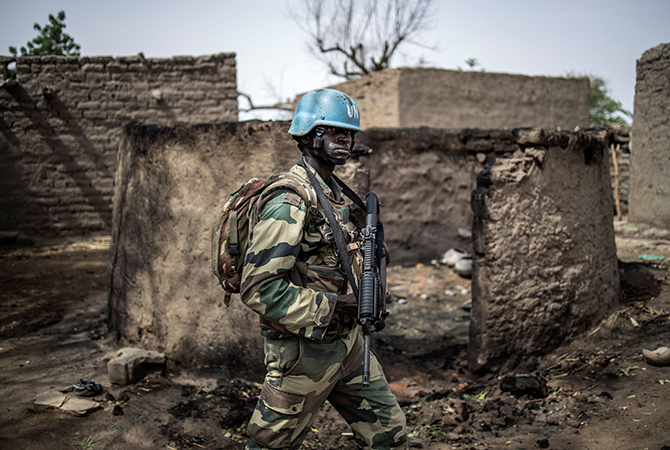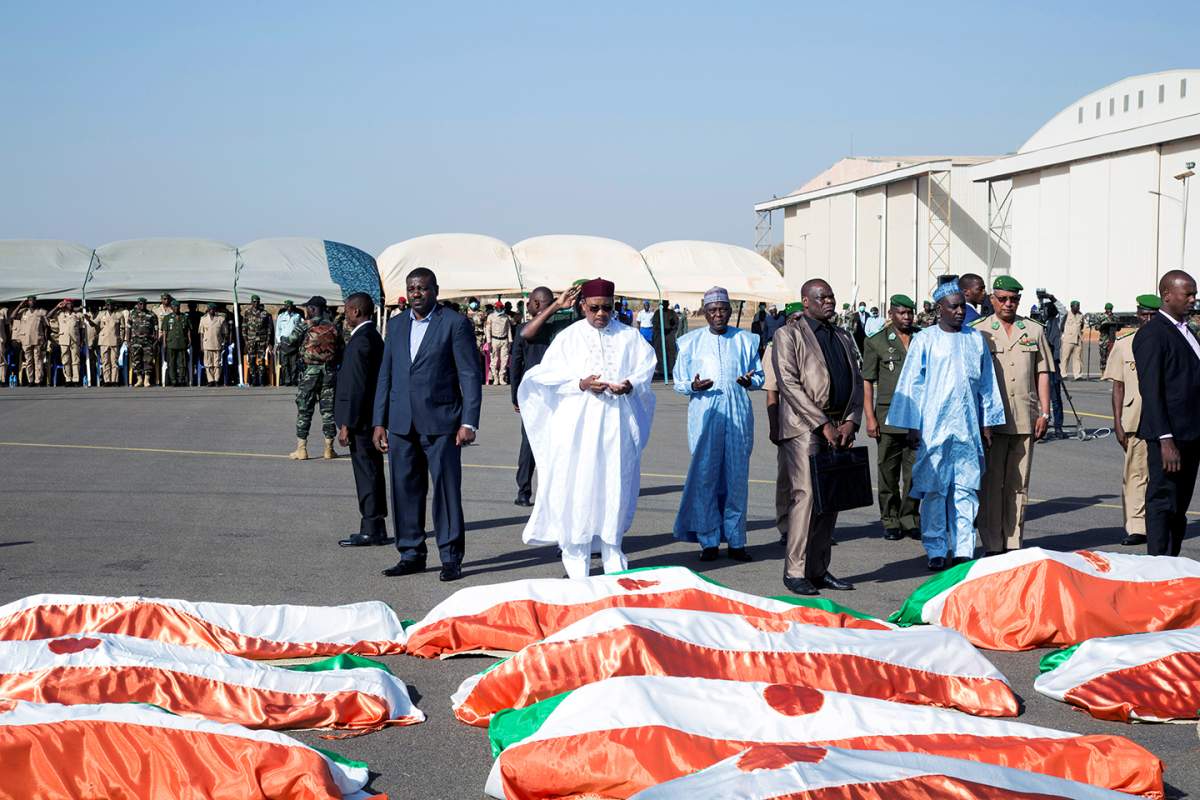Mali, Burkina Faso, and Niger have experienced a devastating surge in terrorist attacks in recent months that threaten to destabilize the region.

On Monday, 32 civilians were killed when militants attacked and burned a market to the ground in the West African nation of Burkina Faso, before killing four more people in a nearby village.
Only a day prior, the prime minister of Burkina Faso and cabinet resigned following a string of attacks by jihadist groups that have roiled the country and triggered a state of emergency in multiple northern provinces.
Jihadists also kidnapped and killed a Canadian mine worker and abducted two other humanitarian workers in Burkina Faso in December 2019.
The region is experiencing an “unprecedented” rise in violence related to terrorism, according to the United Nations. In recent months, Islamist groups, some with links to the Islamic State and Al-Qaeda, have been waging larger, more sophisticated attacks and are expanding into new territory.
In a recent briefing at the United Nations Security Council, Mohamed Ibn Chambas, the UN’s top official for West Africa and the Sahel, warned “the geographic focus of terrorist attacks has shifted eastwards from Mali to Burkina Faso and is increasingly threatening West African coastal states.”
“The humanitarian consequences are alarming,” he said.
In Burkina Faso, Mali and Niger, some 4,000 people were killed in terrorist attacks last year, compared to 770 just three years earlier. In Burkina Faso alone, half a million people are currently displaced and continuous attacks are forcing thousands more to flee their homes.
But even as the security situation in these three countries deteriorates, a Pentagon proposal revealed that the U.S. is weighing the option of military cuts in Africa, where it largely provides intelligence to allies that are fighting extremist groups on the ground.
This region was not always a hotbed for extremism, though — far from it.
The origins of this violence can be dated back to the Algerian civil war that began in the early 1990s and spanned a decade.

“That is where a lot of the groups that you now see, south of Algeria in the Sahelian region, came from originally,” said Alice Hunt Friend, senior fellow at the International Security Program at the Center for Strategic and International Studies.

Get daily National news
Eventually, Islamist fighters from Algeria fled the country, seeking refuge in the deserted areas of northern Mali.
The violence witnessed today largely began eight years ago, when a political crisis in Mali sparked a rebellion by ethnic-based movements and jihadist groups in the north of the country.
The uprising was eventually quashed and the territory seized by jihadists was reclaimed by French forces. But these groups and the ideology they support was far from defeated.
For a while, militant violence was confined mostly within Mali’s borders, but violence is increasingly spilling across borders, fuelling worries that it could spread even farther south and destabilize the region.
“Since 2018, we have started talking about a possible spillover of violence in the northern part of Guinea, Benin, Togo, Ghana and the Ivory Coast,” said Ibrahim Yahaya Ibrahim, an expert on the Sahel region at The International Crisis Group.
“We have seen a very rapid expansion of violence throughout the region. Violence has also intensified.”
Jihadists in particular have become more bold in recent months, Yahaya Ibrahim said, attacking military bases and inflicting major damage.
In the span of just over a month, three attacks on Nigerien soldiers have left 174 dead, in what’s being called the deadliest series jihadist attacks on Nigerien forces in living memory. An Islamic State-linked group claimed responsibility for all three attacks.
But while these groups have adopted the branding of international terrorist organizations like the Islamic State and al-Qaeda, they’re extremely local organizations.
“We want to look at what’s happening in the Middle East and want us to look at the big labels, but it doesn’t necessarily apply to the conflict there,” said Marc-André Boisvert, a researcher and former journalist who reported on the Sahel region.
Through discussions, local jhadist groups motivated by local grievances have come to adopt the Islamic State branding, said Boisvert.
These groups thrive in areas where there is either a weak government or no government at all, which allows local conflicts to arise which they then exploit.
They have also been using ideology to bridge different ethnic groups, convincing them to fight for Islam rather than over smaller tribal conflicts, said Yahaya Ibrahim.
In some cases, jihadist groups provide protection and social services to these marginalized communities in the absence of the government, according to the United Nations.
The UN also concludes that 70 per cent of West Africa’s population depends on agriculture and livestock for a living, and persistent droughts have threatened that way of life.
“This is an area that is being first and hardest hit by climate change,” said Hunt Friend.
“So the economies in these regions are very, very difficult and so militancy is one answer for a lot of young men.”
Despite impressive economic growth in the past two decades, the returns from that are felt by very few. Inequality has reached extreme levels in the region, according to a recent Oxfam report.
The combination of poverty, weak state presence and under-resourced armies has allowed jihadist groups, criminal networks and ethnic armed groups to thrive in the region, despite regional and international efforts.
There’s a large peacekeeping force in northern Mali which has also become one of the deadliest in recent years. France, alongside a military coalition of African states, called the G5 Sahel, is fighting militants. While a new U.S.-built base in Niger is now operational, it mainly supports counterterrorism operations by providing intelligence.
But even still, French President Emmanuel Macron said a U.S. exit from West Africa would be “bad news.”
Experts say that this is a conflict that won’t be solved with guns alone, but rather through politics.
“The international community has been focused only on the military response,” said Yahaya Ibrahim.















Comments
Want to discuss? Please read our Commenting Policy first.